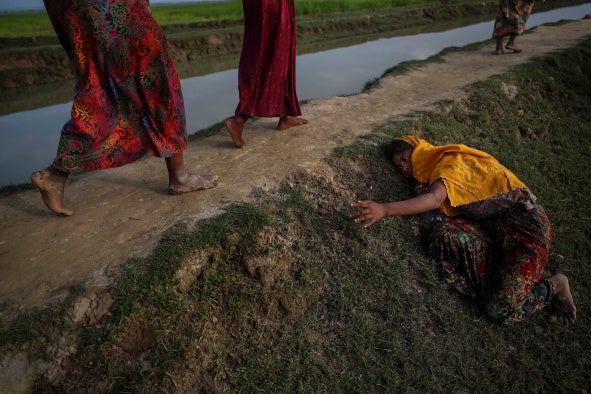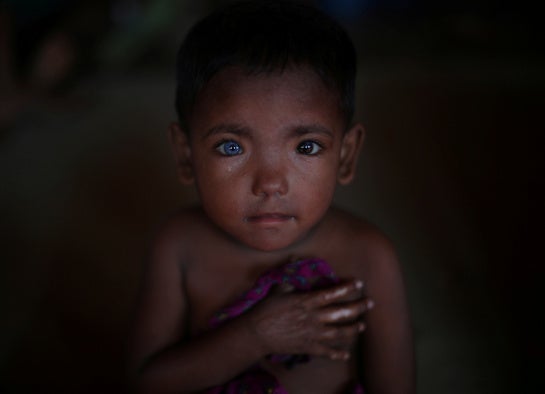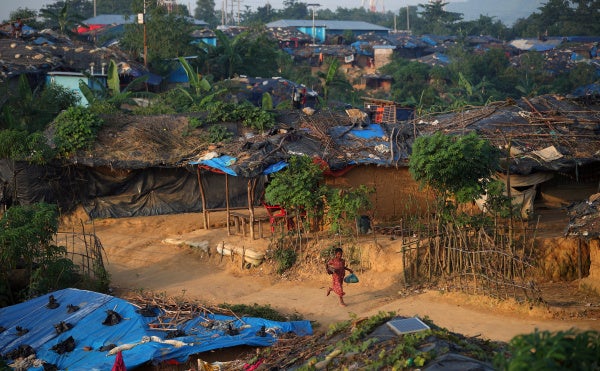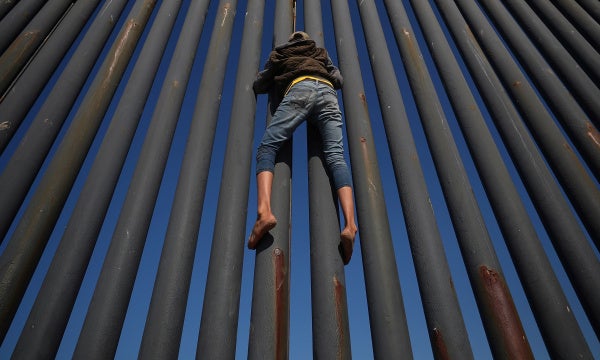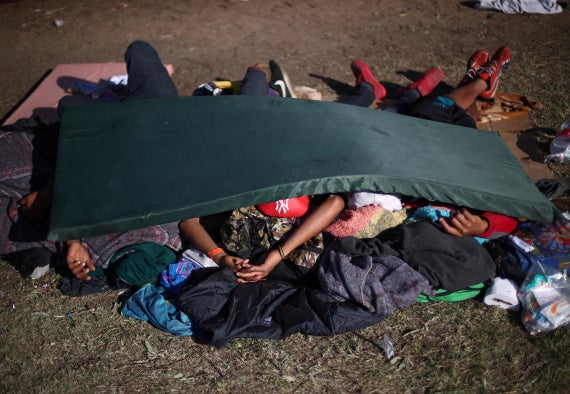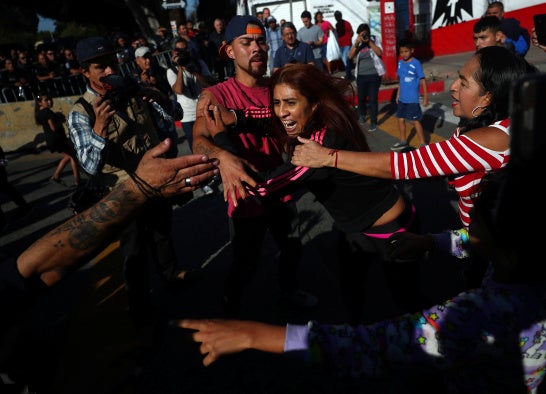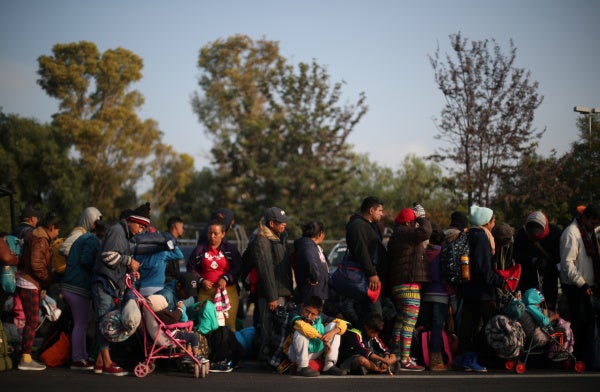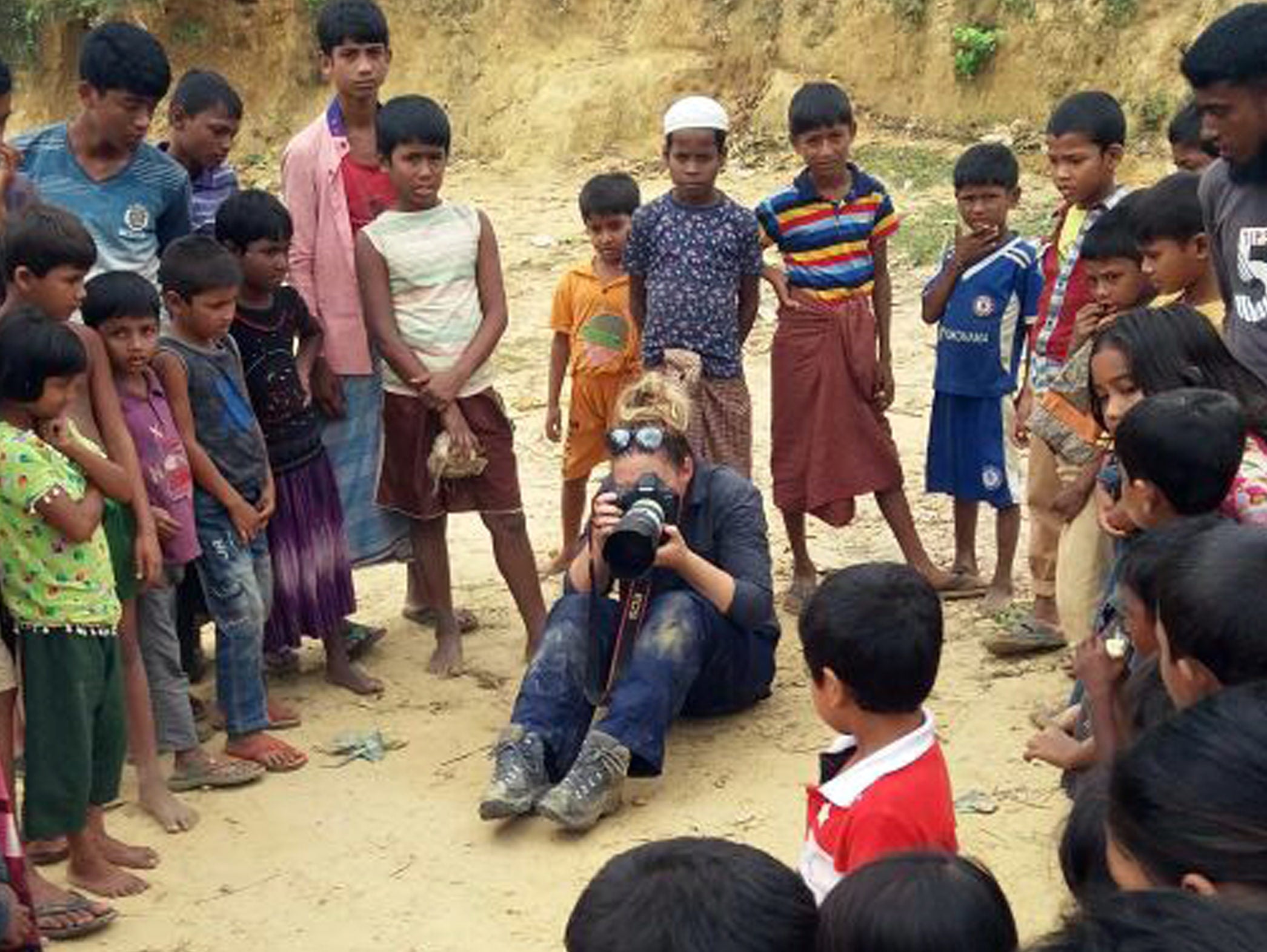
Pulitzer Prize-winning Reuters photographer Hannah McKay has spoken about how finding the balance between humanity and professionalism is crucial when working on a turbulent foreign assignment.
McKay travelled to Bangladesh, at the border with Myanmar, in November last year on the first foreign assignment of her career shortly after joining Reuters as a staff photographer last year.
McKay and several Reuters colleagues were praised by Pulitzer judges earlier this year for their “shocking photographs that exposed the world to the violence Rohingya refugees faced in fleeing Myanmar”.
But at times McKay found the situation “overwhelming” and said it took skill to know when to take pictures and when to put the camera down and help, she revealed to Press Gazette.
“In Bangladesh there were a lot of situations where you want to physically help people, but it’s not possible to help 5,000 people so it’s about recognising when you taking pictures is helping someone and when you putting your camera down is helping someone,” she said.
“It’s just about getting the balance. We’re all human at the end of the day so sometimes being a human does take over from being a photographer, but you have to also remember not to lose that, because you being there is you being there as a photographer and that’s what is needed from you, your pictures.
“There were a couple of moments when I was a bit overwhelmed by the situation, like the one where I helped pull a lady out of the river because she was so exhausted.”
McKay’s photo showing photographers helping the female Rohingya refugee out of the Naf River at the Myanmar-Bangladesh border on 1 November (below) was one of the agency’s Pulitzer Prize-winning images.
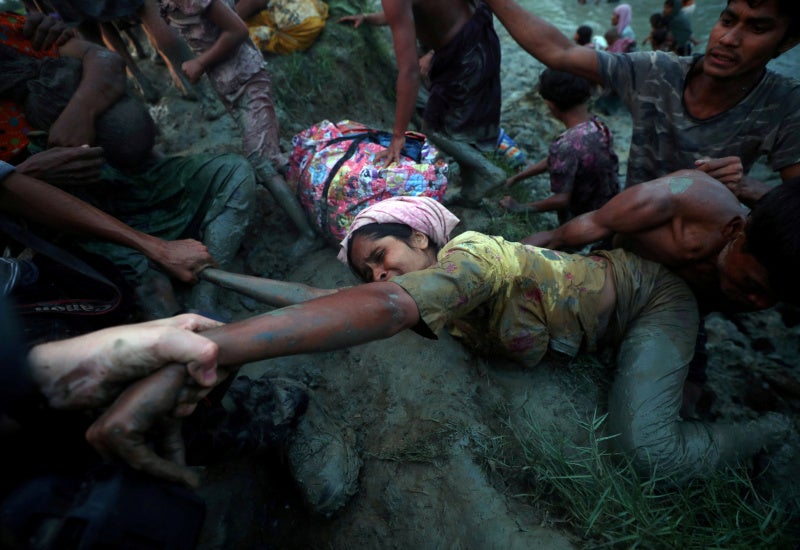
Picture: Reuters/Hannah McKay
In a caption accompanying the photo, she explained why she helped: “We were standing, looking out over paddy fields and grasslands – lots of water and one thin path leading to the border with Myanmar. In the distance we could see a huge group of people. But they weren’t moving.
“It was 4pm with only two hours of daylight left. So we decided to move towards them… Then we saw thousands of refugees just sitting there…
“The crowd was sitting on a riverbank and behind them, about three metres below, in the river itself, there were just hundreds of refugees coming across every minute. It was non-stop…
“Then this woman appeared. She got to the point where she needed to get up to the footpath where we were. But she was exhausted. Two refugee men on her level were trying to push her up, which was when we reached out to help.
“Reuters photographer Adnan Abidi took a hand. Another photographer took another and I got her leg when she got within range. It was a case of dragging her. She lay there for a few minutes. I have no idea what happened to her.
“You are there trying to do your job with a camera in your hand. And then your heart overrules your head.”
McKay is now in Mexico where she has joined the so-called “migrant caravan” travelling to the US from Central America to flee poverty and violence in their own countries.
During the recent US midterm election campaign, President Donald Trump repeatedly stoked fears over the “large caravan of people”, sending thousands of troops to the US-Mexico border to stop what he described as an “invasion”.
McKay said: “There’s so much propaganda and fake news these days but pictures don’t lie.
“So if you’re there photographing what’s in front of you then you know that you’ve done an honest job of what the story is and I think it’s really important to have people on the ground.
“There’s so much media around the migrant caravan story right now that I just think it’s really important to have that because if you don’t then the world won’t know what’s going on – if you’ve got as many people as possible taking pictures, the more that’s out there, the more content there is for people to see and understand the story.”
McKay spoke earlier this month at a Women in Focus event hosted by Reuters and the International Centre of Photography to celebrate women in photojournalism.
The event heard a number of female photographers discuss their experiences of working in a traditionally male-dominated field, and sharing their hope for a more diverse and inclusive photojournalism community.
But McKay told Press Gazette she was more concerned with what she saw as a dearth of young people entering professional photojournalism in the UK, with fewer training courses available and not enough promotion of the career within colleges and universities.
She said that, in her experience, the younger generation of photographers is currently aged around 27 to 30, before another leap in age to people in their 40s and 50s.
McKay said it is important to promote young photographers because “we all see the world differently” and, although newspaper circulation is in almost continuous decline, there are more images used across social media, the internet, websites and TV than ever before.
“Everybody seems to be a photographer these days,” she said. “There’s camera phones and so many digital options.
“You see breaking news and nine times out of ten the pictures on the front pages are taken from a passer-by because they’ve got their phone to hand.
“I’m not sure if maybe people don’t necessarily see that there is a skill to it but from being on the other side of it I would urge people if they’ve got a real interest in news and in photography to try and break their way through.”
McKay added: “A few people were promoting more women and I’m not necessarily against that, but I don’t necessarily think women should be given a helping hand just because they’re a woman.
“I think their work should be used on merit and I like to think that if your work’s good enough it will get used if you’re a man or a woman, so I think it’s about getting a balance between helping promote people in the industry and promoting them for the right reasons.”
Before joining Reuters in 2017, McKay worked as a London-based freelance photographer for agencies including the Press Association, Reuters and European Pressphoto Agency.
She previously spent three years on staff at the National News and Pictures agency and two years at the Coventry Telegraph.
All pictures: Reuters/Hannah McKay
Email pged@pressgazette.co.uk to point out mistakes, provide story tips or send in a letter for publication on our "Letters Page" blog

